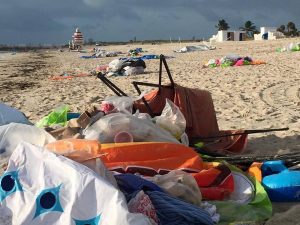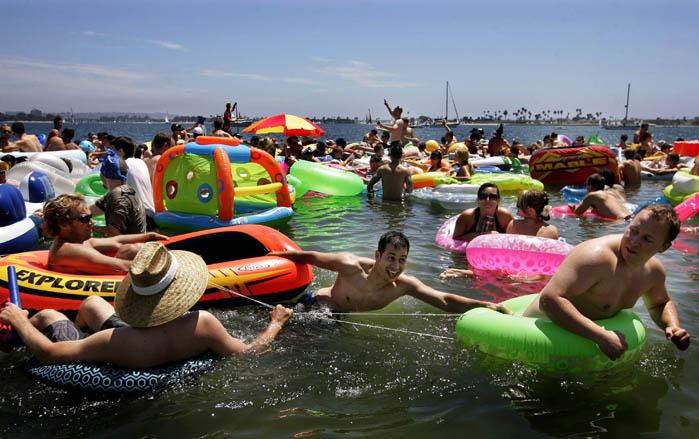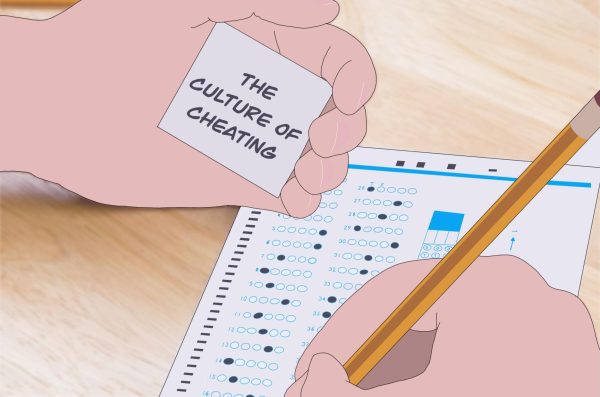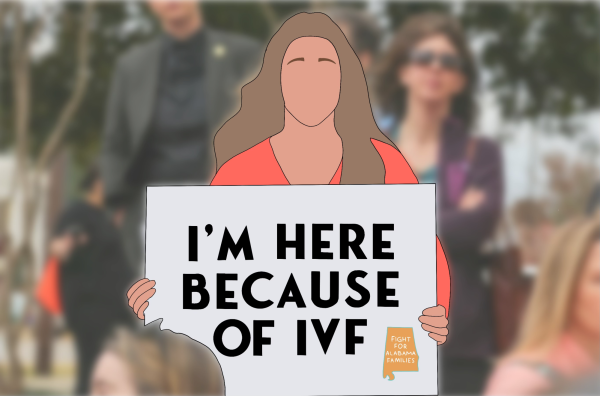Floating In Pollution?
Thousands of attendees enjoy the event but “forget” to clean up the beaches and waters afterwards.
May 11, 2016
Environmentalists have decided to take action against detrimental festival known as Floatopia. Floatopia is a free beach event in which everyone who participates brings their own float and has fun in the sun. However, the fun comes with a price; Floatopia attendees don’t clean up the beaches and abandon their cheap plastic floats that threaten the safety of native animal species. Floatopia Miami 2016 might come to an end after Mayor Philip Levine and Commissioner Michael Grieco vowed to put an end to future Floatopia events on the sunny beaches of Miami. While the Floatopians aren’t very happy about this decision, many environmentalists and citizens are in support of the ban because it will benefit the community and the environment. .
Events like Floatopia are a huge danger to the environment. The amount of trash that is left on the beaches and waters is damaging the beaches’ environments. The garbage in the water will flow away into the ocean, destroying marine life. The efforts of many workers and volunteers trying to get rid of the trash will only go so far. Having all of this trash intoxicating the oceans will have a major impact on the environment since the Earth’s surface is 70 percent water. Water pollution affects drinking water, rivers, lakes and oceans all over the world. Other effects of water pollution are the disruption of food chains and diseases that can be transmitted by humans. The banning of Floatopia will prevent all the harm that is being done to beach ecosystems.
“I think the best solution would be getting rid of events like Floatopia because we as a society need to work together in order to protect the environment,” sophomore Marta D’Ocon said.

The amount of trash that is being left behind at events like Floatopia is harming our environment.
With future Floatopias out of the question, counties will not have to waste money hiring extra police officers, life guards and workers to protect attendees and clean up trash. The government will be able to use the money on other projects that are more necessary without Floatopia. Floatopia doesn’t only put ecosystems in danger but also the lives of those who attend it. Since it’s such a popular event, there are many attendees who are drinking alcohol while relaxing on inflatable floats that are in danger since they won’t notice if they are caught in a rip current and an accident can occur.
“Floatopia is definitely not worth the price of damaging our beaches. I think it would be easier to close it down instead of finding ways to make sure no trash is left behind, but that’s impossible because some people don’t really care about the environment,” freshman Andres Velasco said.

Cleaning crews are needed on Miami Beach to pick up the trash left behind by thousands of Floatopians.
Fellow Floatopians and others disagree with the banning of Floatopia. They believe that it is unfair to those who actually clean up after themselves. Those who disagree feel as if the right to assembly is being taken away from them by banning Floatopia. The organizers of this festival are also trying to prevent trash being left behind by having donating floats booths and volunteer groups. However, it was the minority of the people that cleaned up this year. The organizers will have to provide a paid clean up crew to work this event or say goodbye to Floatopia.
Having a fun Saturday is not worth having to pay the price. It’s better to ban the event because the cause of the banning is that it’s detrimental to the environment instead of the cause being a death. Floatopia 2016 could be the last time we see this event occurring.






















